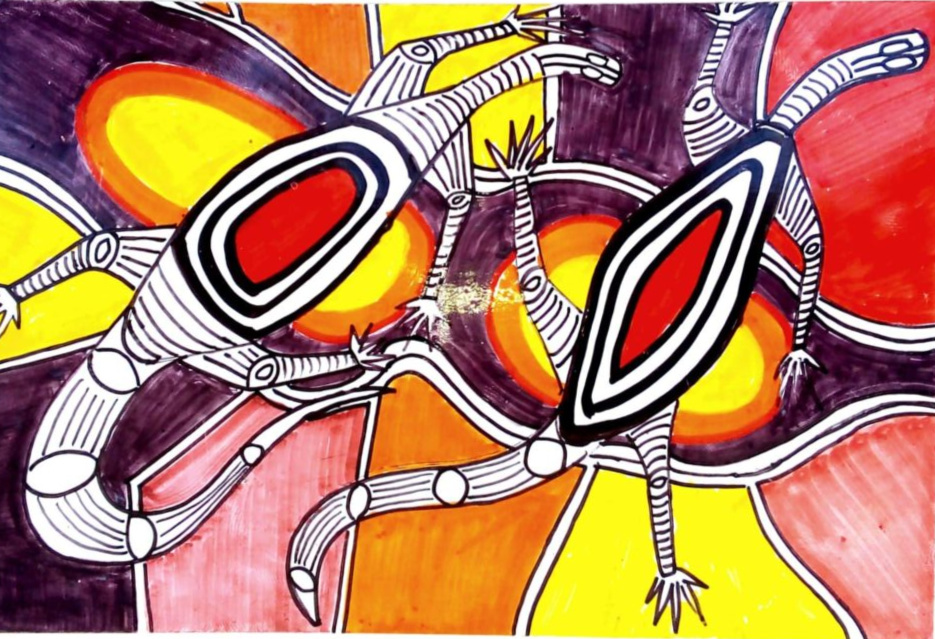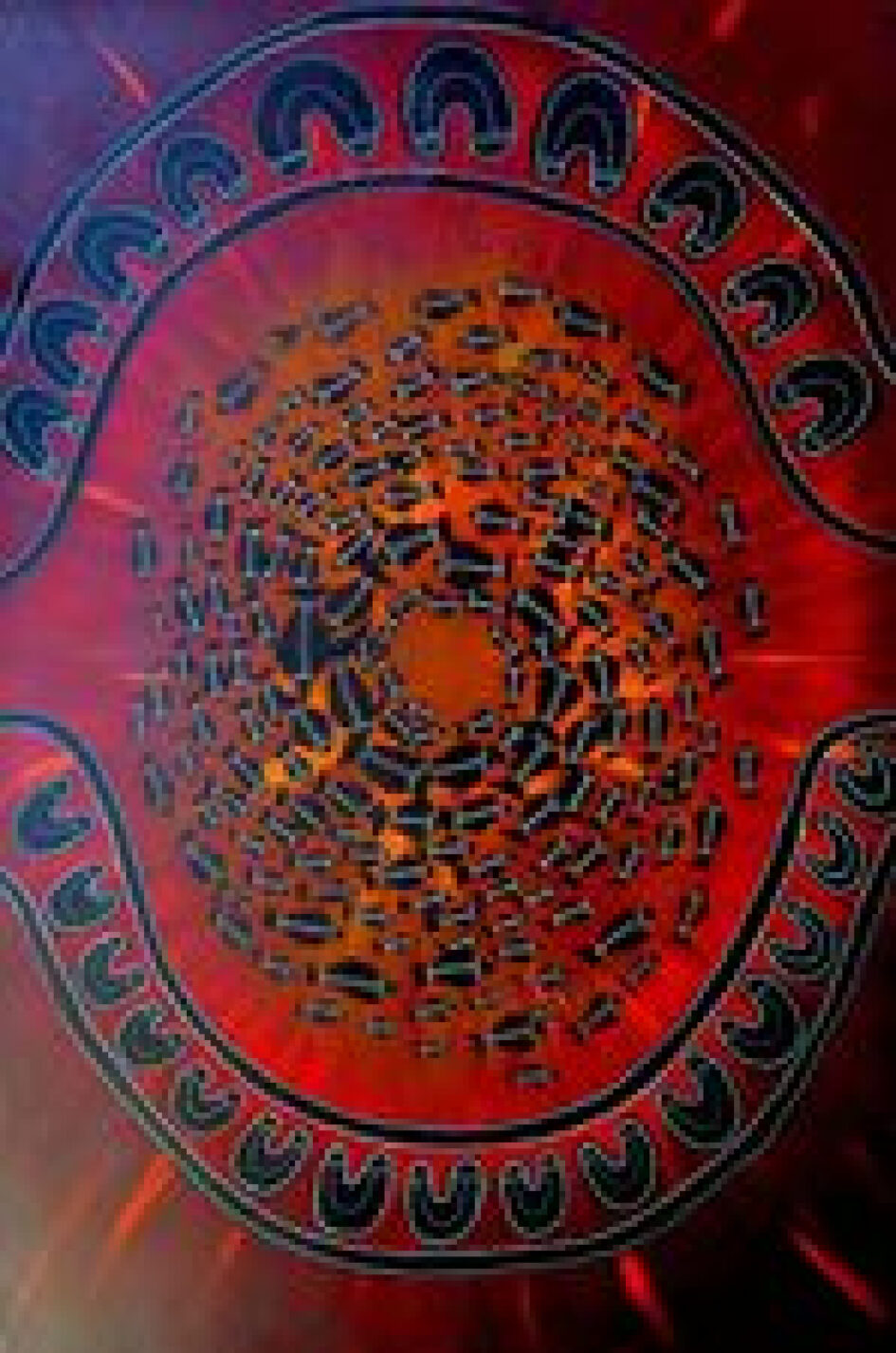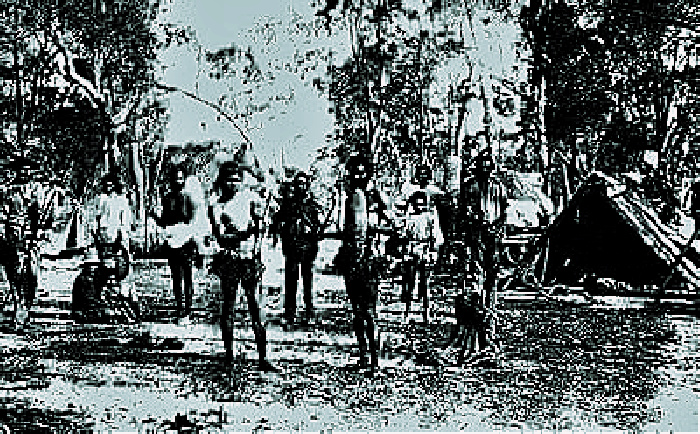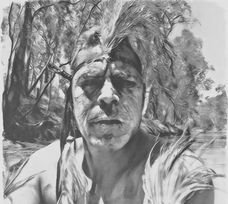Steven Porter: Moree
As the upcoming referendum approaches, there is a pressing need for Aboriginal people to carefully consider the potential impact on their allodial sovereign rights. While the discussion around the referendum largely revolves around classifications such as “aboriginal,” “indigenous,” or “native,” it is vital to recognize that these terms do not define the inherent rights and nationalities of Aboriginal communities.
This post advocates for voting NO in the referendum to safeguard the allodial sovereign rights of Aboriginal people.
Walaaraay Clan, Moree, New South Wales, 1800s, Pitt family, Middle Camp
Understanding Allodial Sovereign Rights
Allodial sovereign rights refer to the inherent, unalienable rights that Aboriginal communities possess in their ancestral lands and territories. These rights predate any modern classifications or designations and are deeply rooted in the rich cultural heritage, traditions, and connection to the land that Aboriginal people have maintained for centuries. Allodial rights recognize their unique nationalities, distinct from any broader categorization.
The Pitfalls of Classification
The referendum’s focus on classification undermines the true essence of Aboriginal allodial sovereign rights. Classifications such as “aboriginal,” “indigenous,” or “native” tend to homogenize diverse cultures, histories, and languages. They can perpetuate the erasure of individual identities, nationalities, and specific relationships with the land. By aligning with these classifications, Aboriginal people risk losing their autonomy and the ability to exercise their inherent rights as distinct nations.

Protecting Aboriginal Nationalities
Voting NO in the referendum provides an opportunity for Aboriginal people to assert their nationalities and safeguard their allodial sovereign rights. By rejecting the reliance on general classifications, Aboriginal communities can reinforce the importance of recognizing their unique cultural, historical, and linguistic identities. Voting NO allows Aboriginal nations to emphasize the significance of their individual nationalities and reclaim their rightful place in the decision-making processes that affect their lands and communities.
Preserving Cultural Diversity
Australia is home to a multitude of diverse Aboriginal nations, each with its own unique heritage and connection to the land. A NO vote enables the preservation of this rich cultural tapestry, ensuring that Aboriginal people can continue to thrive while honoring their distinct languages, customs, and traditions. By rejecting the referendum, Aboriginal communities can resist the potential assimilation into a broader category that fails to acknowledge their unique nationalities.
Empowering Self-Determination
Self-determination lies at the heart of Aboriginal allodial sovereign rights. It is the right of Aboriginal nations to determine their own political, economic, social, and cultural development. Voting NO in the referendum empowers Aboriginal communities to exercise their self-determination by asserting their nationalities and rejecting a system that may impede their autonomy. It is crucial to protect the rights of Aboriginal people to determine their own futures and shape their own destinies.
Conclusion
Aboriginal people should consider voting NO in the upcoming referendum to safeguard their allodial sovereign rights. By rejecting classification and asserting their unique nationalities, Aboriginal communities can preserve their rich cultural heritage, protect their ancestral lands, and exercise their inherent rights. It is time to stand united in defending the distinct identities and self-determination of Aboriginal nations, ensuring a future that upholds the values of diversity, cultural resilience, and respect.
We have ancient names given to us by our creator that connects us to specific country that give us our unique identities and nationalities. We have never been identified by our true allodial nationalities. We have always been classified by what ever they called us. It time we start using our allodial nationalities and start the program of treaties within our own nations, recognising each other’s allodial sovereign nationalities through this positive action.
Steven Porter
We’ve all got different nationalities in this country. I don”t class myself as an Australian Aboriginal or as Indigenous. I’m a Walaraay Mari of the Gamilaraay Nation. We have never been classified as our allodial nationalities. Does this government or any law in this country acknowledge me and my nationality? The establishment of this country was illegal. You cannot discover something where it was already occupied plain and simple.
Australia’s first nation people only make up 2.9% of the whole population and the illegal government want 97.1% of the population to vote on our liberties. That’s not democracy, that’s indoctrination. If there’s going to be a Referendum it needs to be put to us, the First Nations people of this country. Ask us if we would like to be included in this country’s Constitution.




1 Pingback